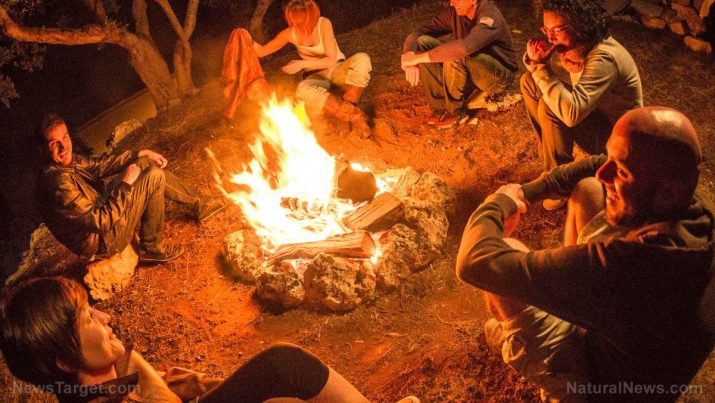Camping 101: 12 Tips and tricks any camper should know
Friday, August 28, 2020 by Zoey Sky
http://www.bugout.news/2020-08-28-camping-tips-and-tricks-any-camper-should-know.html

Preppers have many different hobbies. If you’re the type who prefers outdoor activities like camping, here are some tips to make your next trip more enjoyable and safer for the whole family. (h/t to ModernSurvivalOnline.com)
Bring a first aid kit
Keep a first aid kit in your camping gear at all times.
Include the following items to address minor medical emergencies while camping:
- Adhesive bandages
- Alcohol pads
- Antiseptic solution
- Burn gel and dressings
- Calamine lotion
- Compression bandages
- Cotton balls, pads or swabs
- Diarrhea medicine
- Hydrogen peroxide
- Sharp scissors
- Splinting material
- Sterile gauze pads
- Suture plasters
Check drainage
Before you set up your tent, check where the flow of water will come from if it rains then set up the opening of your tent away from the rainy side. Always set up your tent where the ground is slightly sloped so the area around your tent doesn’t get waterlogged.
Bring a spade
Use a spade to dig a little trench around your tent. This will prevent water from running under the tent if it rains and direct the flow away from your entrance.
Use silica gel sachets
Most products come with silica gel sachets that will help keep your items dry inside your bag. Add these sachets in bags with your firestarting gear or food storage boxes to keep items dry even if you’re outdoors.
Camping water station tips
Maintain cleanliness at your campsite with a no-fuss water station. Use a 2- to 5-gallon container with a tap, then hang a hand towel and place a container of liquid soap nearby.
Make DIY insect repellent
Keep mosquitoes away by combining tea tree oil or citronella oil in a ratio of one part oil to two parts water. Store the mixture in a spray bottle.
Spray the DIY insect repellent on the bottom of your pants, socks and your clothes to protect yourself from mosquitoes, ticks and other insects.
Use headlamps
Flashlights are useful, but headlamps are better for a hands-free light source when setting up camp or cooking dinner.
Bring firestarters
Bring backup firestarting items like lighters and matches. Alternatively, you can prepare DIY firestarters like inner cardboard tubes from toilet rolls stuffed with dryer lint. Store the cardboard tubes in a plastic bag and use it as tinder to quickly start a fire.
Another option is to dip cotton wool balls into a bit of petroleum jelly when it’s time to start a fire.
Use stainless steel water bottles
Plastic water bottles can break inside your bag while you’re traveling or if they’re dropped. Replace them with sturdier stainless steel water bottles to keep hot drinks warm and cold drinks cool.
Prep DIY dry pancake and batter mixes
Before you leave, prep your breakfast. Prepare the dry ingredients for the batter and store it in a plastic jar with a screw-top lid. Leave enough room so you can add milk and eggs into the jar.
Label your containers so you know which liquid ingredients to add before cooking. When you’re ready to cook, add the liquid ingredients then shake the jar to mix.
Easy food prep
Prep your dinner ahead of time. This way, you don’t have to do too many things on your first night when everyone’s tired from the trip to the campsite.
Bring ready-made dishes like a chunky potato salad or some homemade bread so you don’t need to cook food. Bring cooked sausages and re-heat them on sticks over a fire.
The next day, you’ll have an easier time setting up dinner when everyone’s had a chance to rest. Cook some fish you caught or make delicious s’mores for the kids and adults to enjoy.
No pillow? No problem!
If you want to keep your gear light, leave bulky pillows behind and create a makeshift one from your hoodie and some clean shirts. Roll them up into a pillow shape for a good night’s sleep.
Before you leave for your campsite, try some of the tips above and prep your gear ahead of time to make cooking and setting up camp easier.
Sources include:
Tagged Under: Tags: camping, Gear, offgrid, preparedness, prepping, SHTF, supplies, survival, survivalist, tips, tools, wilderness survival
RECENT ARTICLES
COPYRIGHT © 2017 · BUGOUT NEWS


